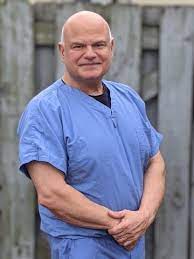If you aspire to become an ear, nose, and throat (ENT) doctor, there are specific steps you need to take and areas of study you should focus on. Dr. Paul Drago, an experienced ENT physician, shares valuable insights on what you need to study to pursue a career as an ENT doctor.
Five Years of Comprehensive Education Becoming an ENT doctor requires a significant commitment to education. You will typically spend at least five years studying in college, medical school, residency, and fellowship programs. To gain admission into an ENT program, you must first complete a bachelor’s degree or its equivalent.
Prerequisites and Specialized Coursework Most medical schools require applicants to have a bachelor’s degree in related fields from an accredited university. It is beneficial to have completed coursework in biology and chemistry during your undergraduate studies. However, some medical schools may accept alternative coursework, such as high school courses in science, if it meets their admission requirements.
If you lack the necessary prerequisites, you can plan to take them during your first year of medical school to ensure you are prepared when classes resume after summer break. It is essential to explore medical schools that offer specialized programs in otolaryngology if you are particularly interested in pursuing this field.
Further Training for Specializations After completing your medical school education and residency, you have the option to specialize in specific areas of ENT medicine, such as pediatrics or plastic surgery. To become specialized in these fields, you will need to undertake an additional two years of training known as a fellowship. This extended training allows you to gain expertise and in-depth knowledge in your chosen area of specialization.
The Rewarding Path to Becoming an ENT Doctor The journey to becoming an ENT doctor requires dedication and perseverance. While the road may be long, the rewards are worth it. As an ENT physician, you will have the opportunity to make a significant impact on patients’ lives by diagnosing and treating ear, nose, and throat disorders.
It is crucial to research and choose reputable medical schools that offer comprehensive ENT programs aligned with your career goals. Throughout your education and training, embrace opportunities for hands-on experiences, research projects, and community clinics to further enhance your skills and knowledge in the field.
In conclusion, becoming an ENT doctor requires completing a bachelor’s degree, followed by five years of comprehensive education, including medical school, residency, and potential specialization through a fellowship program. Paul Drago MD By pursuing the necessary coursework and seeking out specialized programs, you can embark on a rewarding career as an ENT doctor, making a positive impact on patients’ ear, nose, and throat health.
Dr. Paul Drago: What You Need to Study to Become an ENT Doctor
